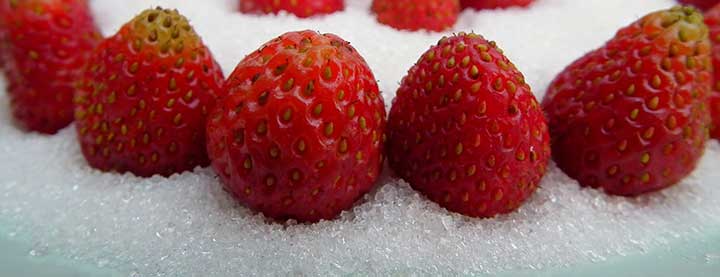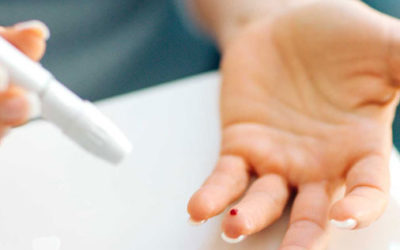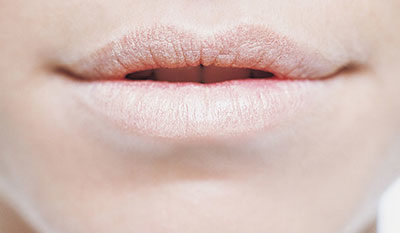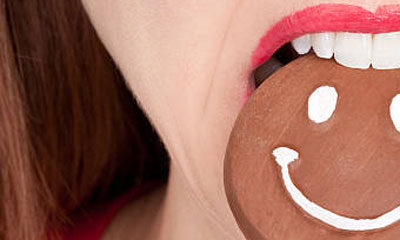Given the new information about the sugar industry paying researchers to downplay the role sugar has in heart disease, finding sugar alternatives to sweeten our food with seems to be an important task.
Finding an alternative to sugar isn’t something new. Those who want to watch their weight, their blood sugar levels, or would rather eat healthier than sugary recipes allow have been getting creative finding alternatives. So we’ve decided to talk a little bit about the best and worst alternatives you can use.
The worst alternative sweeteners you can use instead of sugar are aspartame, sucralose, and fructose (including agave).
Aspartame
There’s nothing natural about aspartame. It’s a synthetic chemical found in Equal, Spoonful, AminoSweet, Benevia, NutraTaste and many “diet” foods and beverages. While not confirmed, it is often thought that aspartame can lead to cancer, birth defects, and weight gain.
Sucralose
Sucralose is most commonly found as the sweetener Splenda. Just like aspartame, sucralose, is synthetically created in a laboratory. Susan S. Schiffman a PhD and adjunct professor at North Carolina State University, says sucralose was previously thought non-metabolized, however, recent findings show otherwise. This creates a new slew of problems.
According to the Schiffman’s study, sucralose reduces good gut bacteria, can make medications less effective, releases toxins, and may alter your body’s responses.
Fructose
Fructose, while not an artificial sweetener, can still be health harming. It is a natural sugar found in all fruits, and is really only dangerous when consumed in large doses and chronically. You might think you’re safe then, right? Unfortunately, most people consume about 500% more than in pre-industrial times, which can cause metabolic toxicity. Remember, this is in large doses where it can become a pathogenic, small doses are harmless.
Deemed unhealthy, your body metabolizes fructose into fat much quicker than any other sugar. When your liver metabolizes fructose, it promotes the dangerous type of fat. Named adipose fat and associated with a greater risk of heart disease, it’s what we aim to avoid in our diets.
Along with glucose, fructose makes up “sucrose” or table sugar, which is one of the reasons fructose is harmful. In the Turku studies, one of the arms of study was fructose, and many participants in that arm transferred to the xylitol arm because of the side effects of fructose.
In addition, fructose fools your metabolism by turning off your body’s appetite control system. Often times, this causes you to gain weight.
So what should you use instead of these sugar alternatives?
Studies are showing that the best things to use instead of sugar are stevia, honey, and sugar alcohols, like xylitol.
Why Xylitol?
Sugar alcohols tend to not be quite as sweet as sugar, but they are close and, generally, a 1:1 ratio in recipes is fine. They also contain fewer calories and carbs. This is because sugar alcohols like xylitol are not completely absorbed into your body.
Unlike some other sugar alcohols, xylitol does not spike blood sugar much at all. This makes it a perfect solution for diabetics. Xylitol comes with added benefits like fighting tooth decay when you use it properly and get enough doses throughout the day.
Related Articles
Indoor air pollution solutions
Breathing Easy Indoors By Jane Wooley. Think pollution is all about filthy air outdoors? You’d be wrong. In recent years, more and more scientific evidence has shown that it’s actually the air inside our homes and buildings that are the most seriously polluted....
Keep your Nose Clean
by Jane Sandwood Every day you breathe up to 30,000 times. Now imagine you’re breathing in polluted air. When we think of toxins in the air, we immediately think of our lung health. But your nose is the first organ that has to deal with polluted, harmful air. Even...
What is Xylitol?
What is xylitol? Well it is pretty amazing, if we do say so ourselves. It is an alternative sweetener that has been popular in food products since the 1960s. On top of being a sweetener, it has shown to have a significant reduction in cavities when used...
Is Xylitol Good for Diabetics?
Let’s first talk about what xylitol is. Xylitol is a sugar alcohol. The suffix “itol” is how you can most often identify a sugar alcohol. Ironically, sugar alcohols are neither sugar nor alcohol. They are basically water-soluble solids found in plants and...
How to Relieve of Dry Mouth with Xylitol
What is Dry Mouth and What Causes It? Dry mouth is caused by the salivary glands in the mouth not performing properly, or, more commonly, by mouth breathing secondary to nasal congestion. Poor salivation can be caused by medications, cancer treatments,...
Prevent Tooth Decay with Sweets
Did you know your sweet tooth could actually make your dentist happy? And we don’t mean because you’ll be paying them to fix your cavities, we mean, you could stop having cavities. It’s true; a sweetener can be the answer to your dental health problems. Xylitol is a...










What’s your view on Erythritol? And how does it compare to Xylitol?
Thank you
Erythritol is also a flexible 5 Carbon sugar alcohol that should have some of the same properties as xylitol. One recent study reports it as better than xylitol. It’s available here if you want to read it. The problem with it is that the major authors work for Cargill, the company that makes erythritol. K Makinen, one of the other authors feels the data were loaded.
I don’t think anyone really knows yet why or how 5 carbon sugar alcohols have these effects on bacteria. The bacteria do ingest them and can’t handle them when they do. But they can also fit into the ‘hands’ (lectins) the bacteria use to hang on to their hosts. If they can’t hang on they are not a problem.